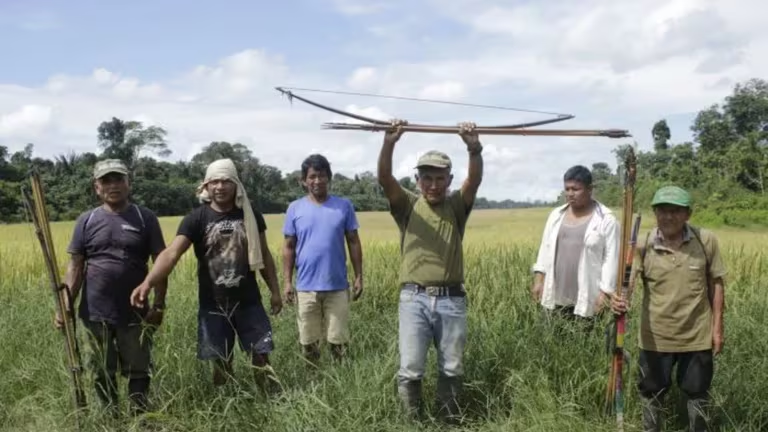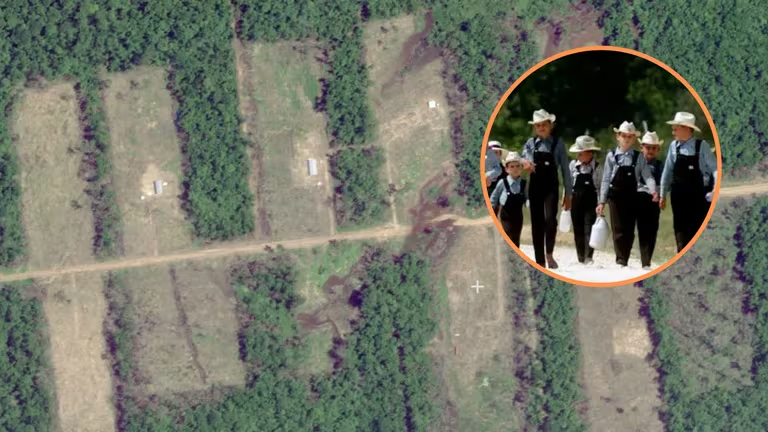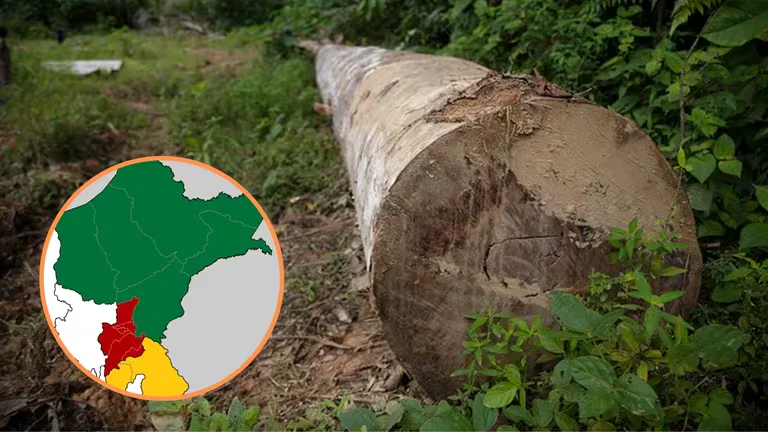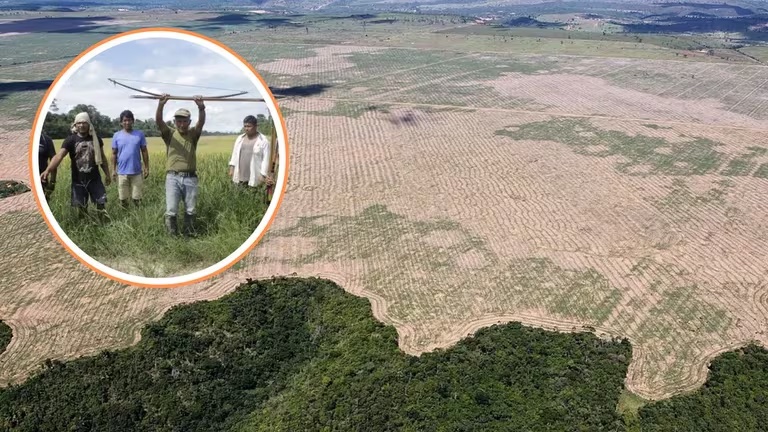The following article was published in Infobae in July 2024. You can read the original in Spanish here.
Although the Court of Environmental Crimes of Ucayali ordered a halt to logging in the Shipibo-Konibo community of Caimito, in the Masisea district of Ucayali, deforestation persists. Mennonite settlers continue with agricultural activities, they report.
According to an investigation by journalist Ronald Suárez Maynas, published in the Servindi portal, the responsibility falls on Mennonite settlers who, despite court orders, continue their agricultural activities, negatively impacting indigenous lands.
Among such orders is the decision of the Transitory Investigation Court for Environmental Crimes of the Superior Court of Justice of Ucayali, which issued a precautionary measure in December of last year ordering the Mennonites to stop their logging activities.
Nevertheless, deforestation persists, affecting both the environment and the livelihoods of approximately 500 inhabitants of Caimito.

Why do the Mennonite farming practices impact the land?
A report by the Monitoring of the Andean Amazon Project (MAAP) revealed that 929 hectares of deforestation was documented in the Masisea settlement, mostly occurring between 2017 and 2019, with a slight decrease in recent years.
According to MAAP specialists and others, the Mennonites’ intensive agricultural practices, which include the use of agrochemicals and heavy machinery, are not suited to the Amazonian ecosystem, resulting in soil degradation.
This is confirmed by Marc Dourojeanni, professor emeritus of the National Agrarian University (UNA), who, in addition to criticizing the passivity of the Public Ministry in the face of the actions of the religious organization of Swiss origin, has affirmed that their practices, although profitable in a short time, are carried out at the expense of the long-term sustainability of the land.

Meanwhile, Abner Ancón Rodríguez, head of the native community of Caimito, told Servindi that in October 2023, the Shipibo Indigenous Guard of Caimito managed to stop attempts by the Mennonites to initiate their production, including soybean and rice crops in their territory.
“The Shipibo Indigenous Guard of Caimito [a group that emerged within the community to protect their ancestral territory against deforestation] managed to remove the machinery and the foundations of the houses they intended to build,” stated Ancón.
However, in parallel to the tensions, the Caimito community recognizes that the presence of the Mennonites has generated a notable commercial exchange among the population in comparison to the high costs of Pucallpa’s traditional markets. The settlers have developed an efficient trade that supplies the local and regional market. According to the indigenous community, the dairy and agricultural products offered by the Mennonites are valued for their quality and competitive prices.
“They are selling us quite cheap, that’s why we buy from them. Not only do they come here, but they also go to Masisea,” says Ruth Vásquez Santos, from the adjacent community of San Pedro in Masisea.
Although, Abner Ancón Rodríguez, head of the native community of Caimito, states that this commercial flow is unidirectional; that is, there is no reciprocal and fair exchange between the Mennonites and the Shipibos, which causes only one party to be favored.

Who are the Mennonites?
A report by the Latin American SciDev.Net portal indicates that, since 2017, the religious group has deforested more than 7,000 hectares in Ucayali and Loreto, violating forestry laws and indigenous territories.
Likewise, the Amazon Conservation Association (ACCA) reports that five Mennonite colonies in Peru, Vanderland, Osterreich, Providencia, Chipiar and Masisea, deforested 2,426 hectares between January 2022 and August 2023.
Faced with this situation, the Masisea Indigenous District Organization (ORDIM) declared their territories in a state of emergency, using collective security mechanisms to protect themselves.
They also denounced problems such as illegal logging, coca leaf cultivation and resource exploitation by external companies that threaten the Indigenous Peoples in voluntary isolation in the Amazon region.
